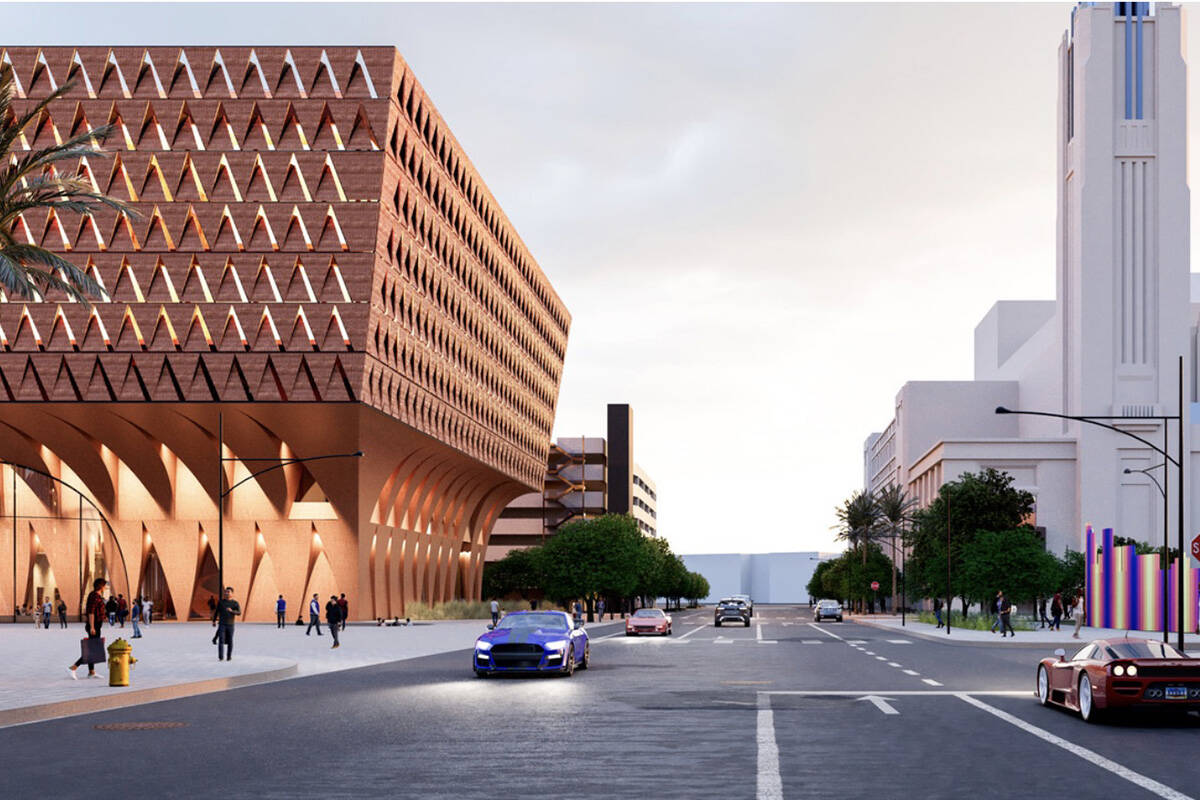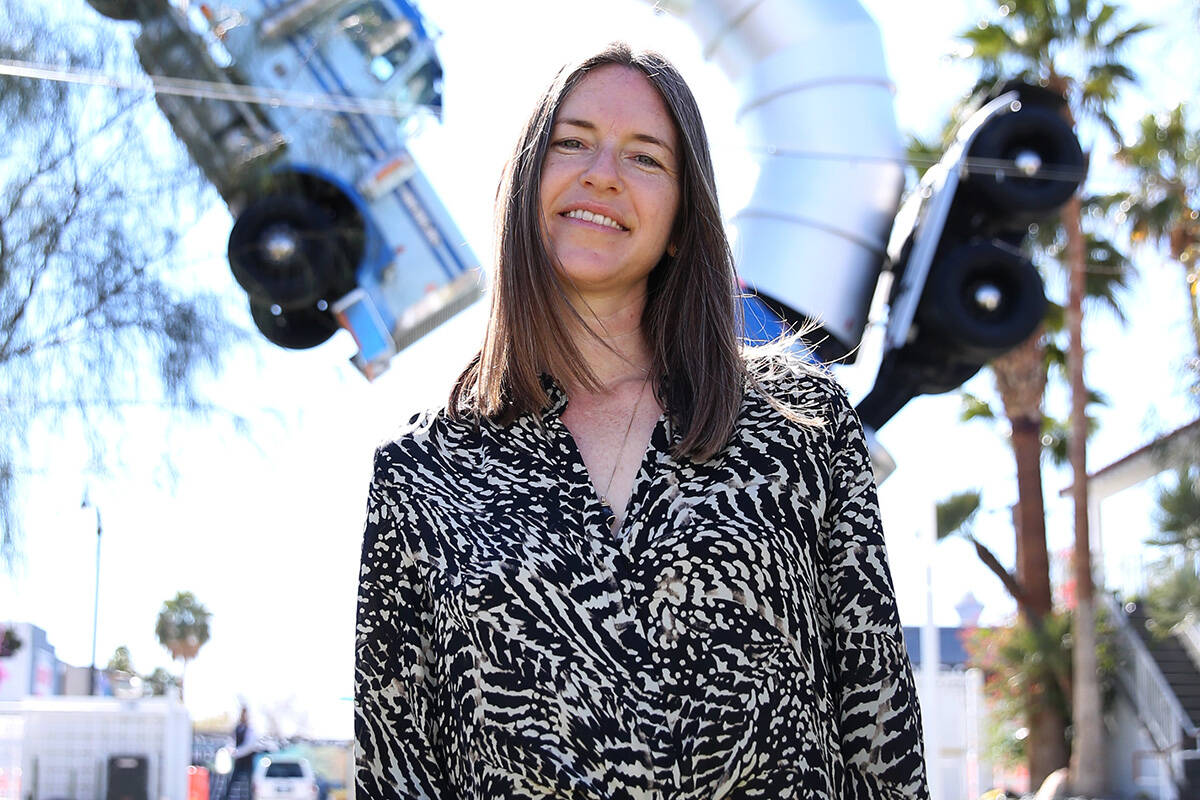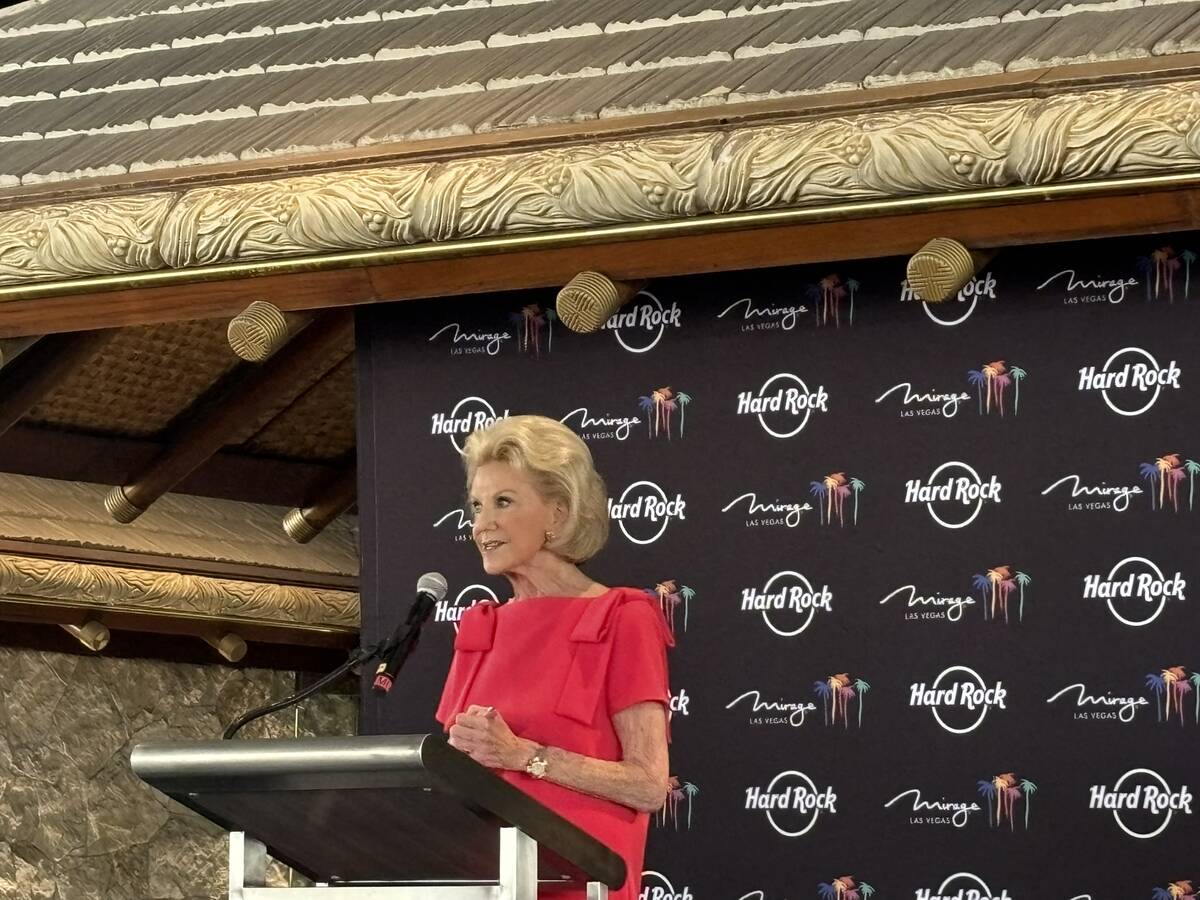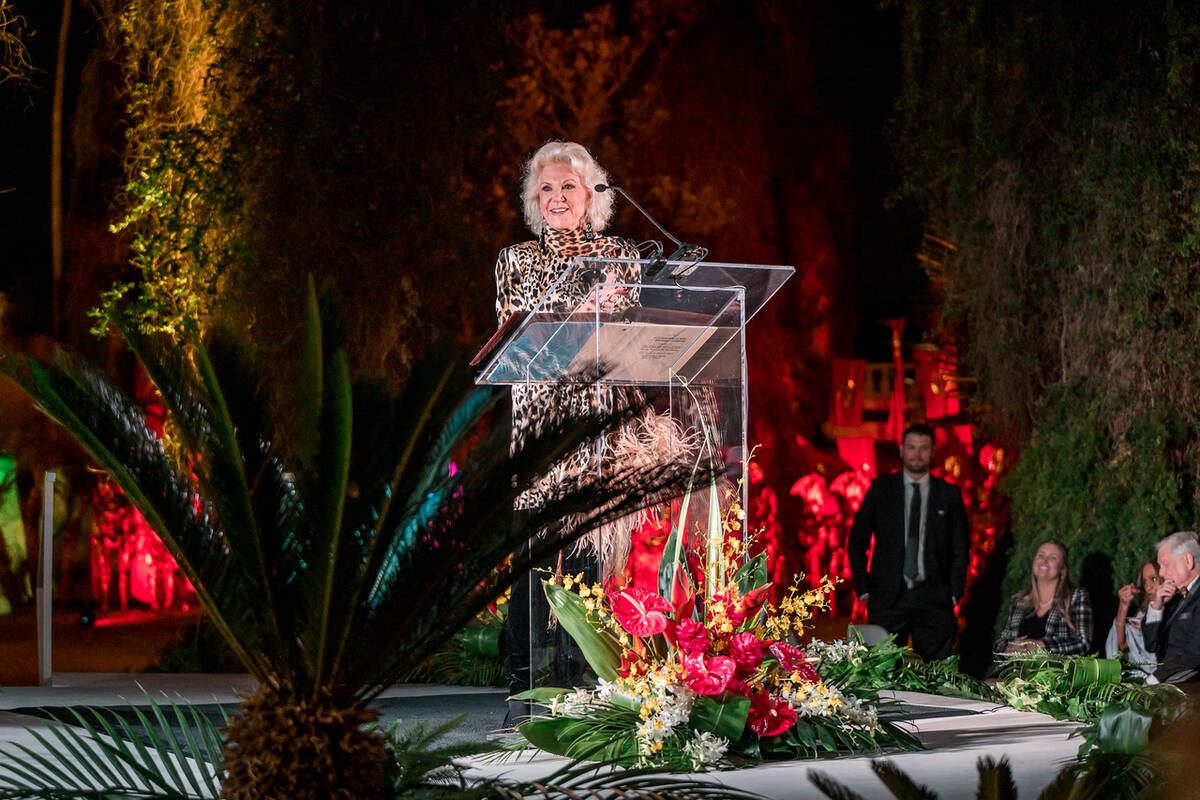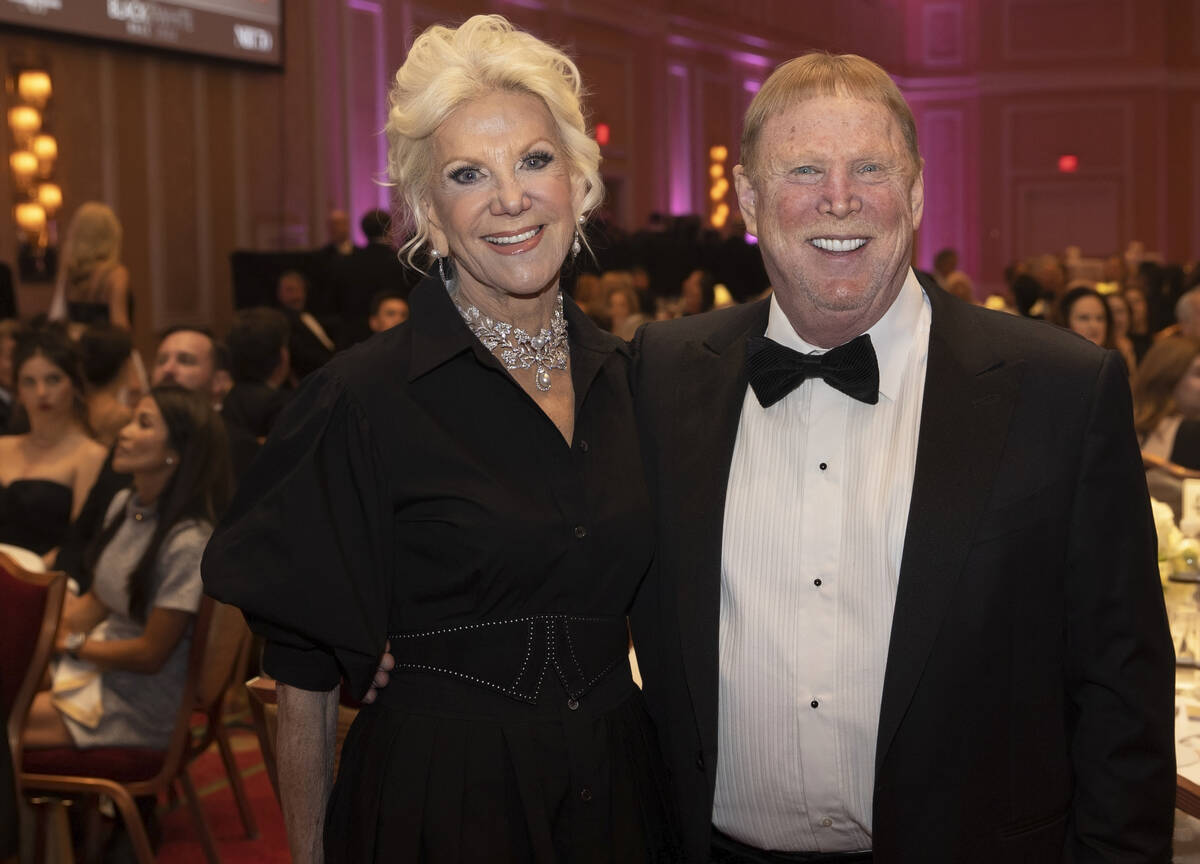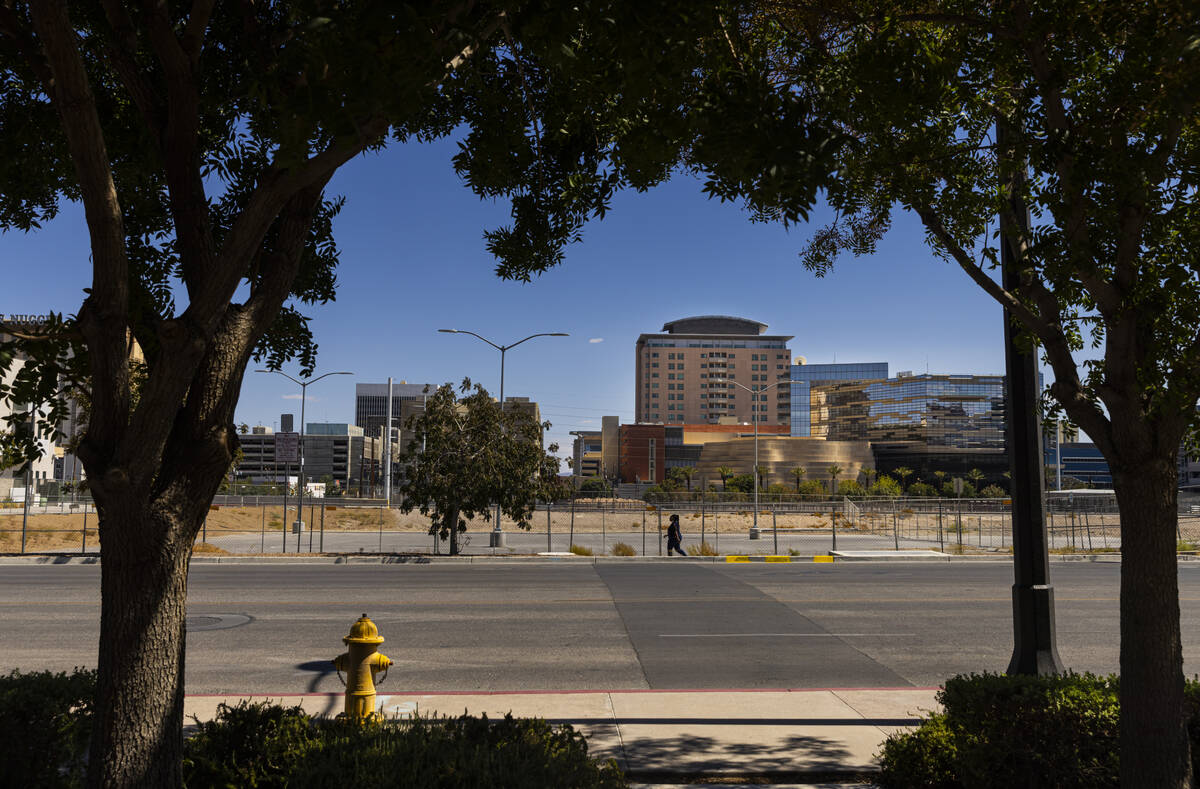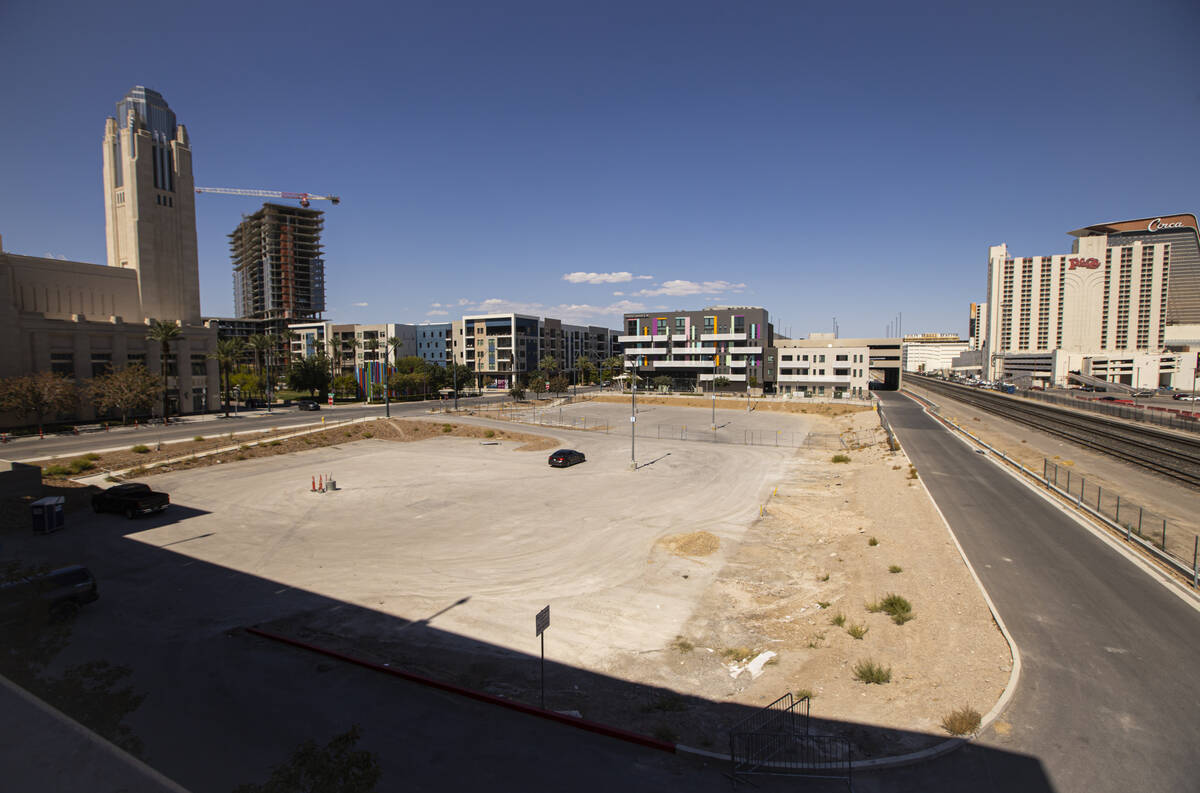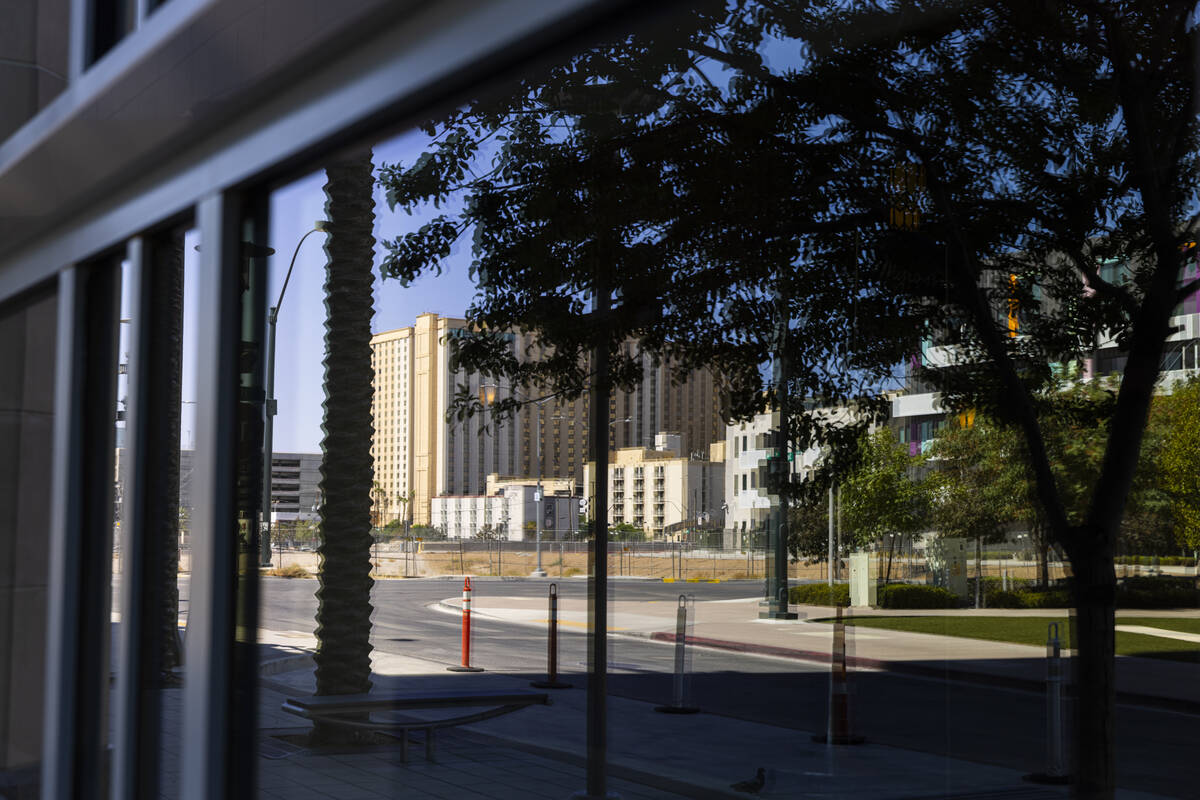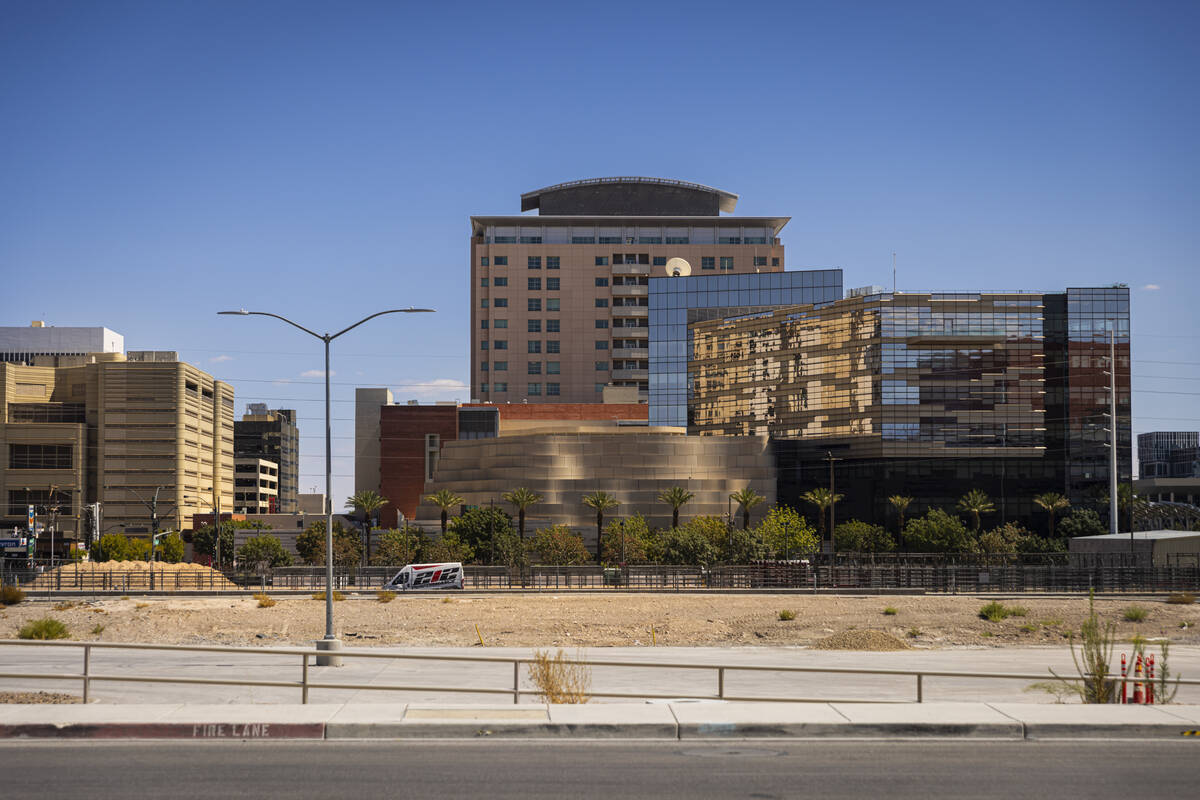Elaine Wynn: Las Vegas museum ‘my personal legacy’
The partnership that ignited Las Vegas’ artistic expansion began with a casual conversation more than a decade ago. Elaine Wynn, one of the Las Vegas’ most prominent philanthropists with a passion for enriching the city’s cultural heritage, conferred with Los Angeles County Museum of Art CEO Michael Govan.
“Michael planted this in my ear, ‘You know we really ought to build a museum in Las Vegas,’” Wynn said in a phone chat this week. “He said, ‘Las Vegas is such a great city, everybody loves going there. We can get this going.”
Govan recalled, “I said to her, ‘I’ve been coming to Las Vegas for dozens of years, and I just need to know why isn’t there a museum in Las Vegas? Her response was something like, don’t get me started.”
It has started now.
That discussion is the cornerstone of a partnership between the just-announced Las Vegas Museum of Art and Los Angeles County Museum of Art — or LACMA, in shorthand. The long-awaited LVMA is set to take over a 1.5-acre parcel in Symphony Park, just east of The Smith Center’s Reynolds Hall (home of Nevada Ballet Theatre and Las Vegas Philharmonic performances) and Discovery Children’s Museum.
LVMA Executive Director Heather Harmon says she hopes construction will start in 2026. The planned opening will be 2028.
Wynn, who is also LACMA’s co-chair, said LVMA is the quintessential passion project.
“For me, this is a personal legacy of giving something back to my city,” she said. “This museum is to be enjoyed primarily by people who live and work here, and the children who go to school here, and hopefully the visitors who come to Las Vegas.”
Up next: Funding
The nonprofit project will cost $200 million, with a capital campaign to be announced before the end of the year. Grants, sponsorships and donations will fuel the effort.
The LVMA’s formal description of the 90,000-square-foot structure: “The museum’s building is thoughtfully organized, with two stories of exhibition space elevated above a vibrant open plaza and adjacent sculpture park. The design turns the Plaza into a front porch, fostering an inclusive environment where public amenities can intertwine with community events, ultimately enhancing Symphony Park’s character as a neighborhood and cultural destination.”
The city council on Wednesday unanimously approved the use of city land for LVMA, which will join the Smith Center in Symphony Park and established Vegas-centered museums such as the Neon Museum and The Mob Museum in downtown Las Vegas.
Mayor Carolyn Goodman says the LVMA development is a culmination of her three terms in office, as well as her husband’s mayoral tenure.
“Art has been a key pillar in the development of the city of Las Vegas over the last 25 years. From the beautiful Smith Center for the Performing Arts to public art installations and murals, Las Vegas is a city of art,” Mayor Goodman said in a statement. “ I am excited about the prospect of adding a new art museum to our city, which already boasts so many popular museums.”
Design, location key
LVMA’s design architect is Francis Kéré, founder of Berlin-based Kéré Architecture. Kéré is a Pritzker Prize-winning designer, the annual $100,000 award for design excellence, established by the family that founded the Hyatt resort chain.
“Our design blends the beauty of the desert environment with local building principles and the passion and collaborative spirit of the Las Vegas Museum of Art to create a space where dreams come to life,” Kéré said in a statement “It is a tremendous honor, and a highlight of my professional journey, to create a space that will bring art and joy to the residents who call Las Vegas home.”
Upon LMVA’s completion, Las Vegas will no longer be the largest municipality in the U.S. without an independent, fine art museum. Harmon notes that the 30 largest cities across the country are home to standalone museums.
The Vegas arts figure says the timing of LVMA’s development was dictated by the city’s growth and the ongoing evolution of Symphony Park.
“I think timing has been forced by momentum, and the natural maturation of our city, it feels like a museum is missing,” Harmon said. “So we really get to galvanize upon that. I think the Smith Center especially was a tremendous barometer of success, and is such a beacon for us. We’ve learned so much from the Smith Center’s success and how to build upon that.”
Harmon praised LVMA trustees Dana Lee, a longtime Las Vegas philanthropic leader; and Roger Thomas, famous for his design known for his design work for many of Wynn’s resorts “for being such tireless champions of this project.”
L.A. benefits, too
The LACMA relationship with LVMA will provide proper exhibition space for works currently archived out of public view. LACMA is the largest museum in the western United States, but even it is not large enough to display all of its collected works.
“We have collections from all time, all places, and like most big museums, a lot of that collection is in storage,” Govan said. “No one wants to see art in storage. We’ve been sharing our collections quite strategically in our region. It’s an easy leap between Las Vegas and Los Angeles. My vision is, with an electric truck and soft packing, it’s very inexpensive and efficient to move collections and programs. We will be able to share our artworks and our territorial work with a huge population nearby.”
Inconsistent history
Las Vegas has an uneven history of museum support. Many have prospered, including the aforementioned downtown projects and such history-steeped destinations as National Atomic Museum (conversely, the Liberace Museum shut down 15 years ago, its pieces parsed at Liberace Garage and the Thriller Villa on Palomino Lane). UNLV still maintains strong support at its Marjorie Barrick Museum of Art.
Wynn points to the Bellagio Gallery of Fine Art, which she co-founded when Steve Wynn opened the resort in 1998, as generating an arts-welcoming climate on the Strip.
“The Bellagio gallery was more about being a feature for our hotel’s hospitality,” Wynn said. “That was the aspiration. But it developed in us a high degree of sophistication about art. It’s one thing to enjoy art. It’s another thing to become an art collector and to start really getting up to speed on the art world and all of its dimensions.”
The Venetian attempted its own fine art annex, the Guggenheim Hermitage Museum, which ran from 2001-08 and presented “The Art of the Motorcycle” for two years, attempting to attract tourists before shutting down.
Off the Strip, Las Vegas Art Museum on West Sahara Avenue closed in 2009, attracting fewer than 1,000 paying members when it went under.
Time to show up
Wynn says the LVMA will draw from support from a city that has blossomed in other cultural areas. She dismisses the idea that the project is too strident to be supported by the Las Vegas community.
“I’m prepared to be charitable, to be very generous, but I’m not going to be so generous that it gets the job done,” she said. “That’s not the point. The community has to own it. And we’ll develop a board, and we’ll do what everybody else does. There’s no reason why this prosperous community that can build arenas and has sports teams and Spheres can’t participate. I just reject that.
“I don’t take anything for granted, but I know that we can do this.”
John Katsilometes’ column runs daily in the A section. His “PodKats!” podcast can be found at reviewjournal.com/podcasts. Contact him at jkatsilometes@reviewjournal.com. Follow @johnnykats on X, @JohnnyKats1 on Instagram.



